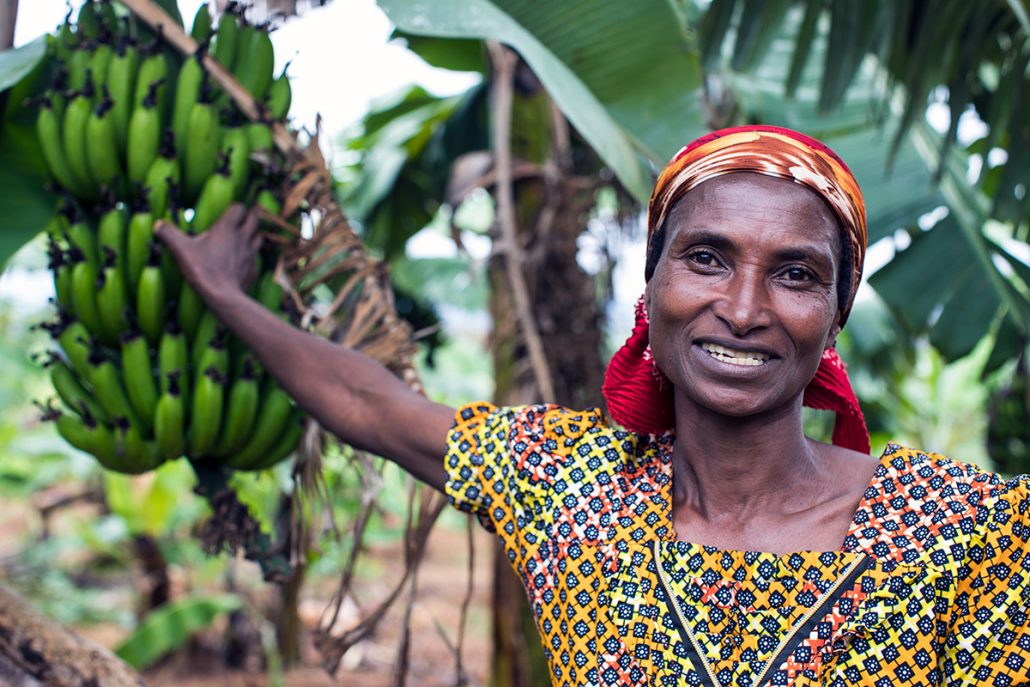Making bread. It sounds easy. Therapeutic even. My grandmas used to do it all the time. I thought it would be fun. Something to fill in the afternoon and surprise the family for the soup meal that night.
Oh, but when I first tried, it was a disaster. It was like a rock! Even the chooks turned up their beaks at it. Luckily, we had a loaf of bread from the supermarket in the deep freeze to rescue the day.
But, for Francine whom I met in Burundi, there was no bread. No options. I could try making bread for a leisure activity. For Francine, daily bread was a matter of fighting for survival.
“I have a lot of problems in giving birth. Three of my children have died in childbirth. I cannot work now as each time I gave birth I had to have surgery. I cannot cultivate or do hardly anything. I am very poor and often have nothing to eat. I have nothing and many times I sleep without eating.
My husband has fled to Tanzania to try and get work to help the family. But our house is in debt. The people who we owe money have come to take my plot of land. My children are hungry. I am breast feeding the youngest but there is nothing there.”
Or for someone like Akeer in South Sudan. My heart ached for her as I listened to her describe what it is like to not have food, to feel overpowered by hunger.
“But now the flood has destroyed the harvest. It is very hard. We will have a big hunger now. We would only eat once a day. The food was mostly just sorghum, okra and kudra. I felt miserable to see my children hungry. I didn’t want to have this life. The children were often sick. If I took them to the public health place, they did not have enough medicine to give to us. If they tested to have malaria, I did not have enough money to buy medicine from the private clinic.
When you are so very hungry, you feel you can’t have anything. You want to plant but you have no energy and no seeds. Sometimes you have to ask your neighbour for food. It makes me feel very sad. You feel weak. No energy. I didn’t feel even able to do any work. Sometimes I felt so weak I couldn’t even go and collect the water or look for firewood. My husband died in the conflict.”
And as I think of how much bread [and cereal and food] my two teenage boys consume, I was reminded of the three young lads whom I met in the Kakuma Refugee Camp – Wali, Matu and Malook.
“We are three cousins. We are here from South Sudan. We left our country five years ago because of the war. We have no other family. They are all gone. It is just us. We receive tokens for the food rations. We get rice, sorghum, oil, sugar, okra, and spinach. The food is never enough to last the two weeks.”
There are so many in our world today for whom the cry of “Give us our daily bread” is a true cry from a place of hunger.
And then this is where you become part of their story. Part of their answered prayer. Responding to Jesus’ invitation to care for the poor.
Through ALWS you have supported women like Francine and Akeer through programs that teach basic literacy and numeracy; participation in community training groups in agricultural practices and knowledge, the provision of seeds, tools, and the opportunities to raise chickens, cows, grow bananas, or open a small business.
“I felt happy to join the group and work together, to know more and to be able to cultivate more.”
“I am so thankful for this knowledge and training. Now I can already buy food for the children and will be able to pay the school fees. I will encourage them to complete school. And if they get sick, I can buy some medicine. My children had not always been able to go to school, but now this is helping them. Thank you for upgrading my life. I feel so happy with the knowledge that I have from this training.”
It is such a joy to see families gain skills and a way to provide for their families. To see women discover their God given gifts. From being ashamed of being in groups because they had no education, to now being treasurers or leaders of groups and able to care for their families.
Through Gifts of Grace, and the GRACE project, you support students with extra food at school in the Refugee Camps; providing nourishment and assisting in their ability to concentrate during lessons. But, perhaps, the greatest gift you give is hope. Someone has remembered them and is caring.
Each time I visit with any of these people I am always humbled by their gratefulness. As we pray, “Give us our daily bread”, may we always be grateful for the abundance God has poured into our lives and, in our thankfulness, follow the example of Jesus who responded to the needs of the hungry when he fed the 5000. He took a little. In his hands it became a lot!
Whether you give regularly, are involved with Gifts of Grace, leave a Gift in your Will, or respond to an appeal, we thank you for helping to provide and enable many to receive their daily bread.
As Awak says, “You help lift us up. You help us go forward. We thank you that you are helping us – people you don’t even know!” or from the words of Deng, “I feel the hunger is now much less and I am thanking the generous people and say, ‘may God bless you’, when I am sitting with my family with full stomachs!”
Julie Krause, from ALWS

